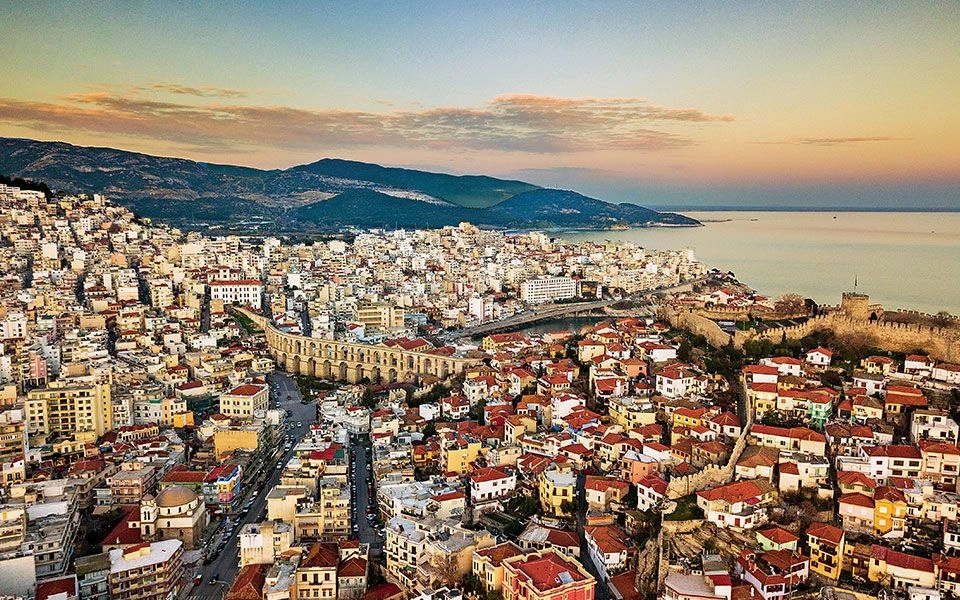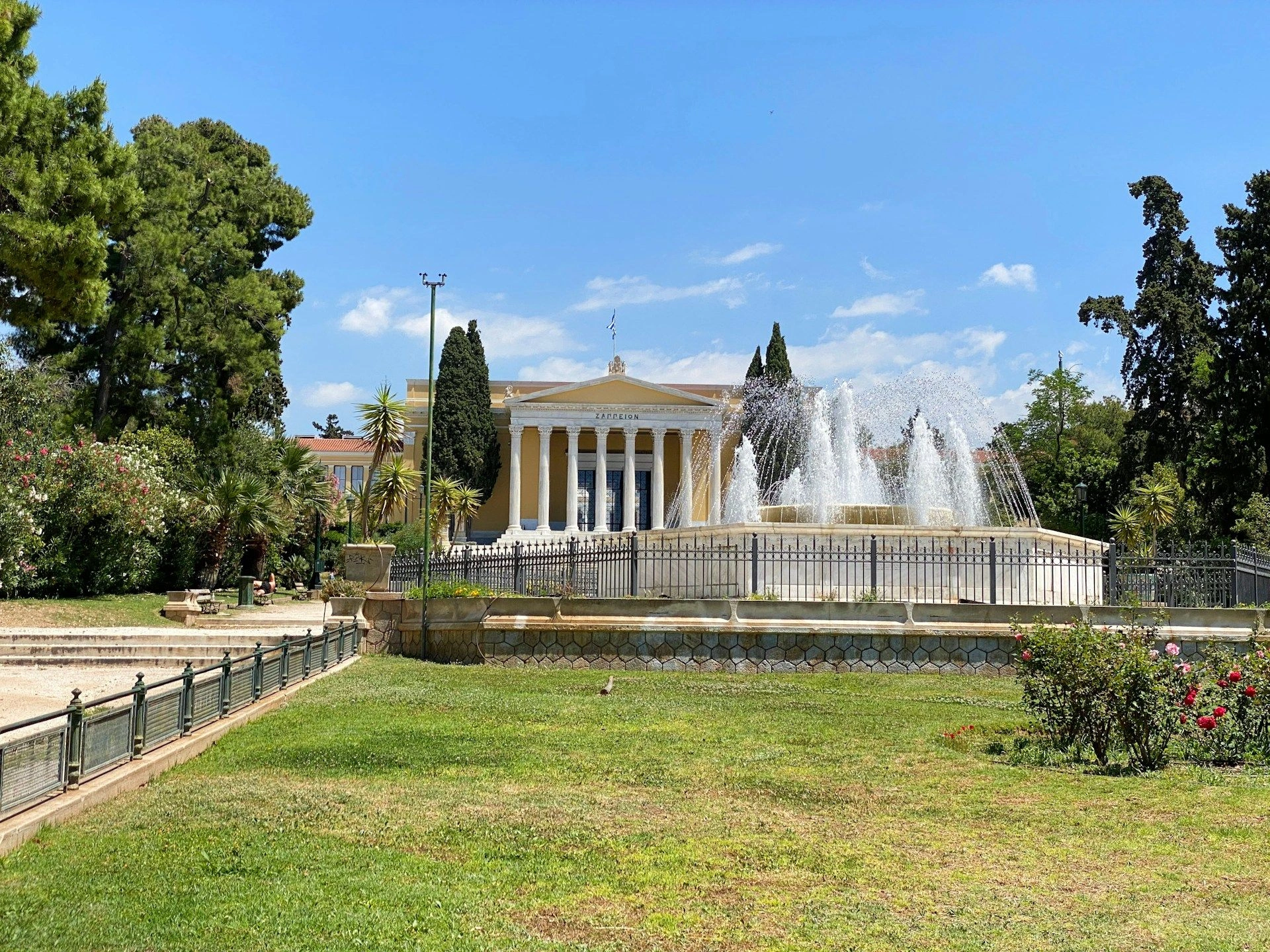Expat Depression Counseling in GreeceRebuild emotional resilience withguided online sessions

Popular
cities and regions in Greece
Advantages of Psychotherapy
for expats in Greece
Virtual Coastal Climate Coping
One-on-one online sessions teaching breathwork, mindfulness, and behavior activation to manage heatwaves, high humidity, and seasonal tourism surges on Greek islands and mainland destinations
Hellenic Cultural Fluency
Interactive workshops and role-plays focusing on Modern Greek pronunciation, regional customs (name days, panigyria), and social etiquette—fostering confident engagement in Athens, Crete, or Thessaloniki
Bureaucratic Navigation Support
Tailored virtual guidance on registering for AMKA, obtaining a residence permit (Διαμονή), and enrolling in public healthcare (ΕΟΠΥΥ), reducing administrative stress across Greek regions
Virtual Coastal Climate Coping
One-on-one online sessions teaching breathwork, mindfulness, and behavior activation to manage heatwaves, high humidity, and seasonal tourism surges on Greek islands and mainland destinations
Hellenic Cultural Fluency
Interactive workshops and role-plays focusing on Modern Greek pronunciation, regional customs (name days, panigyria), and social etiquette—fostering confident engagement in Athens, Crete, or Thessaloniki
Bureaucratic Navigation Support
Tailored virtual guidance on registering for AMKA, obtaining a residence permit (Διαμονή), and enrolling in public healthcare (ΕΟΠΥΥ), reducing administrative stress across Greek regions

Useful articles
and recommendations from experts
All
Global Market Guides
Greece
Navigating Property Ownership in Greece: Regulations, Restrictions, and VelesClub's Multilingual Guidance
Navigating Property Ownership in Greece: Regulations, Restrictions, and VelesClub's Multilingual Guidance
25.11.2023

Global Market Guides
Legal & Regulatory Insights
Greece
Short-Term Rentals in Athens: Earning €3,000 a Month
Short-Term Rentals in Athens: Earning €3,000 a Month
31.10.2023

All
Global Market Guides
Greece
People in Greece are willing to pay €3,000 to move to a village. True, there is a small nuance!
People in Greece are willing to pay €3,000 to move to a village. True, there is a small nuance!
03.11.2023

Securing residency and citizenship
Investment
Greece
Real Estate Investment for Residency: A Global Comparison
Where Property Buys You Residency in 2025
26.03.2025

Clinical Psychotherapy for Expatriate Adaptation in Greece
Moving to Greece offers expatriates a tapestry of experiences: turquoise Aegean waters, sun-drenched islands, historic ruins in Athens, and mountainous villages in Epirus. However, acclimating to Greece’s climate extremes, linguistic nuances, and intricate social customs can challenge even the most adventurous newcomers. Virtual clinical psychotherapy delivers structured, evidence-based support to help expatriates navigate each stage of adjustment—from anticipatory anxiety to confident adaptation—while fostering emotional resilience, cultural fluency, and practical coping strategies. Through secure online sessions, therapists guide clients in integrating into Greek life with confidence, balancing respect for local traditions with personal well-being.
Emotional Phases of Expatriate Relocation
The expatriate experience in Greece typically unfolds through interrelated emotional phases, each presenting unique stressors and growth opportunities:
Anticipatory Anxiety: Weeks or months before departure, individuals often experience intrusive worries: “Will I handle the hot summer heat on Mykonos?” or “Can I navigate ATMs and street signs in Greek script?” Physical symptoms—insomnia, tension headaches, digestive upset—frequently accompany these concerns. Early virtual therapy sessions focus on psychoeducation—normalizing stress responses—and introduce foundational tools such as diaphragmatic breathing, guided imagery of sunset over Santorini’s caldera, and structured “worry windows” to contain rumination.
Honeymoon Period: Upon arrival, many expatriates feel uplifted by Greece’s novelty: sampling fresh seafood at Cretan tavernas, exploring archaeological sites in Delphi, or witnessing Orthodox Easter celebrations. Optimism and awe can temporarily buffer stress and cultivate early engagement with local customs, from evening promenades on Thessaloniki’s waterfront to coffee rituals in Athens’ Kolonaki district.
Culture Shock: As daily tasks emerge—registering for an AMKA number, queuing for public transport in Piraeus, bargaining at Rhodes’ old town markets—feelings of frustration, homesickness, and self-doubt may surface. The Greek propensity for indirect communication, late-night social rhythms, and leisurely pace can clash with expatriates’ expectations, triggering social withdrawal or irritability when routines falter.
Negotiation Phase: Clients collaborate with therapists to build personalized coping strategies. These may include graded language exposures—practicing phrases like “Καλημέρα” (Good morning) at local bakeries—mood-tracking journals linked to temperature triggers or holiday crowds, and daily micro-mindfulness breaks aligned with siesta hours to manage sensory overload. Cognitive reframing exercises transform self-talk from “I’ll never adapt” to “I’m learning local rhythms,” effectively reducing anticipatory and in-the-moment anxiety.
Adaptation Phase: Over time, expatriates report a coherent sense of belonging: navigating Athens’ Metropolis seamlessly, participating in island festivals (panigyria) on Paros, and forming supportive friendships with both Greek nationals and international communities. Emotional equilibrium returns as clients integrate personal values—community participation, cultural exploration, or family cohesion—into Greece’s distinct seasonal and regional landscapes.
Evidence-Based Virtual Therapeutic Approaches
Virtual psychotherapy for expatriates in Greece weaves multiple evidence-based modalities into a cohesive, client-centered framework. After an initial intake combining standardized assessments (GAD-7 for anxiety; PHQ-9 for depression; PSQI for sleep quality) with a thorough clinical interview exploring personal history and Greece-specific stressors, therapist and client co-design a personalized treatment roadmap. This roadmap specifies session frequency (typically weekly initially), measurable objectives (e.g., consistent use of Greek in daily tasks), and modality selection, all delivered through secure telehealth platforms.
- Cognitive-Behavioral Therapy (CBT): Clients learn to identify and challenge automatic negative thoughts—such as “I’ll never understand Greek bureaucracy”—using thought records, behavioral experiments, and graded exposures. For example, a client may predict difficulty renewing a residence permit at the local Decentralized Administration office in Crete, then test the scenario, observing actual challenges and adjusting beliefs accordingly.
- Acceptance and Commitment Therapy (ACT): ACT promotes psychological flexibility by guiding clients to accept uncontrollable factors—heatwaves in Athens, ferry cancellations between islands—while committing to actions aligned with core values, such as exploring traditional folk dances or volunteering at community olive harvest events.
- Mindfulness-Based Stress Reduction (MBSR): Virtual guided meditations, body scans, and mindful movement exercises leverage imagery of olive groves in Kalamata or the rhythmic lull of Ionian Sea waves to anchor attention, interrupt rumination, and reduce physiological arousal induced by sensory overload.
- Interpersonal Therapy (IPT): IPT addresses evolving social roles and cross-cultural communication nuances. Structured role-play exercises simulate everyday interactions—ordering meze at a Taverna in Chania, conversing during a local wedding reception, or politely declining late-evening invitations—enhancing assertiveness and reducing relational anxiety.
- Behavioral Activation: To counter withdrawal and low mood, therapists collaborate with clients to schedule positively reinforcing activities: virtual attendance at a live-streamed bouzouki concert in Thessaloniki, an online cooking class for authentic spanakopita, or remote participation in a guided hike through Vikos Gorge, followed by session reflections to reinforce mastery and motivation.
Navigating Greece’s Cultural, Bureaucratic & Environmental Landscape
Expatriates in Greece must contend with a confluence of cultural, administrative, and environmental stressors:
Language & Dialects: Modern Greek employs a unique alphabet, and regional dialects—from Cypriot to Pontic—introduce pronunciation and vocabulary variations. Interactive virtual workshops integrate alphabet drills, tonal pronunciation practice, and conversational role-plays—asking for directions in Nafplio or ordering a frappé in Larissa—alongside cognitive reframing techniques that view errors as essential learning opportunities rather than personal failures.
Bureaucratic Complexity: Greece’s administrative processes can be protracted, involving digital appointments for AMKA registration, in-person visits to DEYAs (municipal water authorities), and coordination with private insurance for ENI coverage. Therapists equip clients with anticipatory planning tools: bilingual checklists, appointment-scripting role-plays, and reframing strategies to interpret procedural delays as systemic norms rather than personalized obstacles. Celebrating each milestone—receipt of a tax number, activation of health card—builds resilience and counters procedural anxiety.
Climate & Seasonal Extremes: Greece’s climate ranges from Mediterranean warmth to continental cold in northern mountainous regions. Summer heatwaves—often exceeding 35 °C in Thessaloniki—can disrupt routines and elevate irritability, while winter snow in Zagori and Epirus may induce isolation. Therapists teach climate-specific sleep hygiene—airflow management for seaside apartments, use of layered bedding for inland homes—guided progressive muscle relaxation to alleviate temperature-driven tension, and mindful hydration strategies. Scheduling activities—morning olive grove strolls in Olympia or afternoon museum visits in Patras—supports circadian alignment and emotional balance across seasons.
Island vs. Mainland Contexts: Life in Athens’ urban sprawl differs starkly from remote Cycladic islands. Virtual sessions include “urban transit mindfulness” exercises during metro or bus commutes in Piraeus contrasted with “nature anchoring” practices for quiet island settings. Sensory grounding—anchoring to the scent of pine forests in Evia or the lull of Caldera horizons—mitigates stress and fosters presence in varying geographical contexts.
Family Dynamics & Long-Term Resilience Planning
Relocation impacts entire family systems, as each member navigates adaptation at their own pace:
- Partner Adjustment: One spouse may thrive in Thessaloniki’s tech startups while the other copes with domestic isolation in Mani villages. Virtual family therapy sessions foster active listening and “I-statements” (“I feel overwhelmed when we miss local holidays”), realigning expectations, sharing coping strategies, and co-creating supportive daily rituals—such as weekend monastery visit reflections or communal cooking of gemista.
- Child Adaptation: Children face schooling transitions—choosing between international schools in Glyfada, bilingual programs in Heraklion, or local Greek curricula—and peer integration. Family sessions include collaborative problem-solving: arranging bilingual playdates, scheduling extracurriculars like football clubs in Volos, and weaving Greek mythology storytelling into bedtime routines to reinforce resilience.
- Identity Mapping: Visual exercises guide each family member in reconciling pre-move roles—professional, caregiver, community member—with emerging Greek identities—“Mediterranean explorer,” “Hellenic culture liaison.” Shared digital whiteboards clarify which aspects to preserve, adapt, or cultivate, forging a coherent family narrative that honors both origin and new experiences.
As expatriates transition from adaptation to full integration, therapists schedule booster sessions at three, six, and twelve months post-move. These follow-ups revisit coping strategies, address emergent stressors—career milestones, educational transitions, or shifts in EU policies—and celebrate adaptation achievements. Intentional rituals—annual virtual reflections on relocation anniversaries accompanied by photo collages of Greece’s seasonal beauty (spring blossoms on Santorini, autumn mists over Meteora)—anchor progress and cement a sustained sense of belonging beneath Greece’s azure skies.

